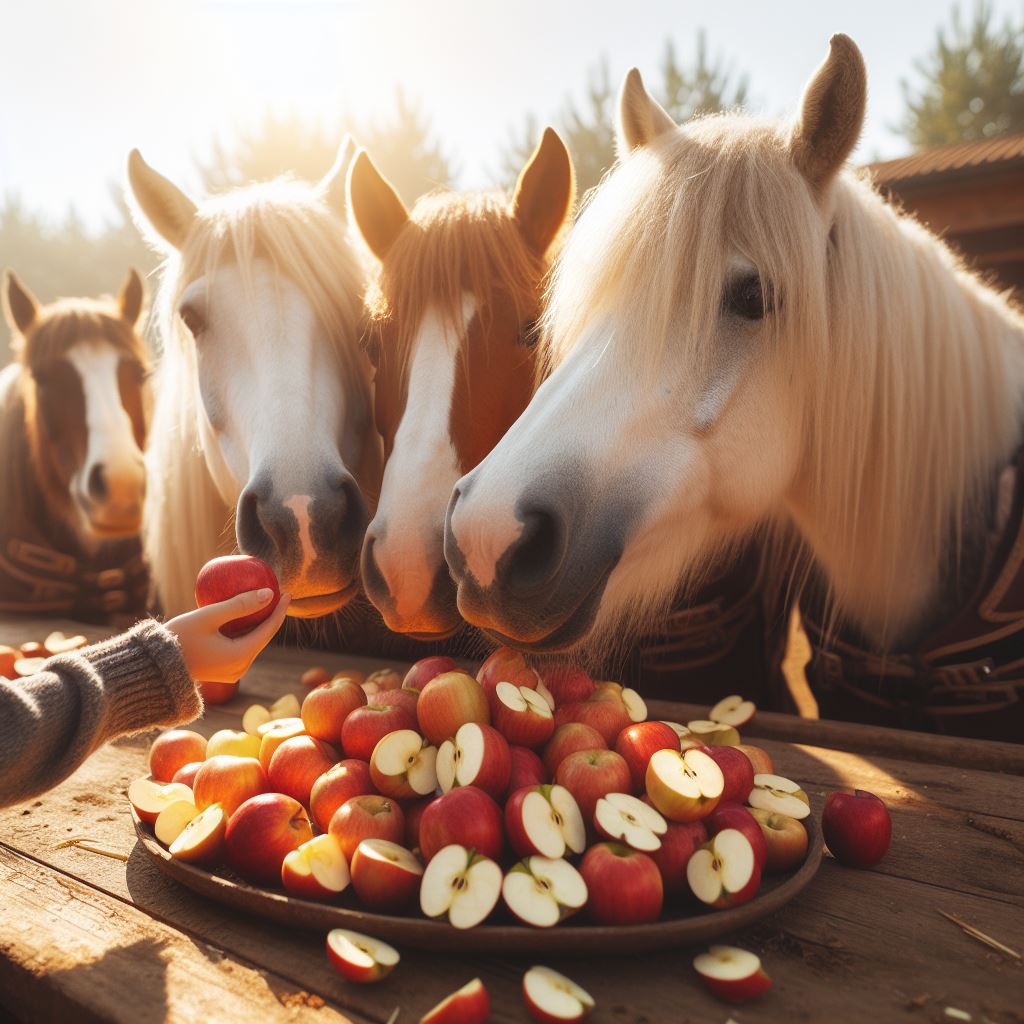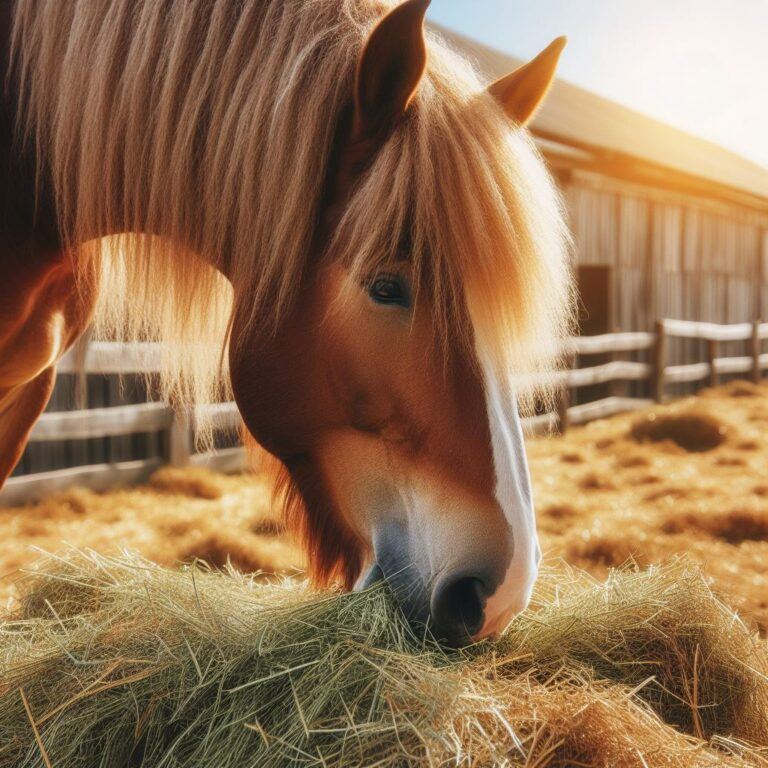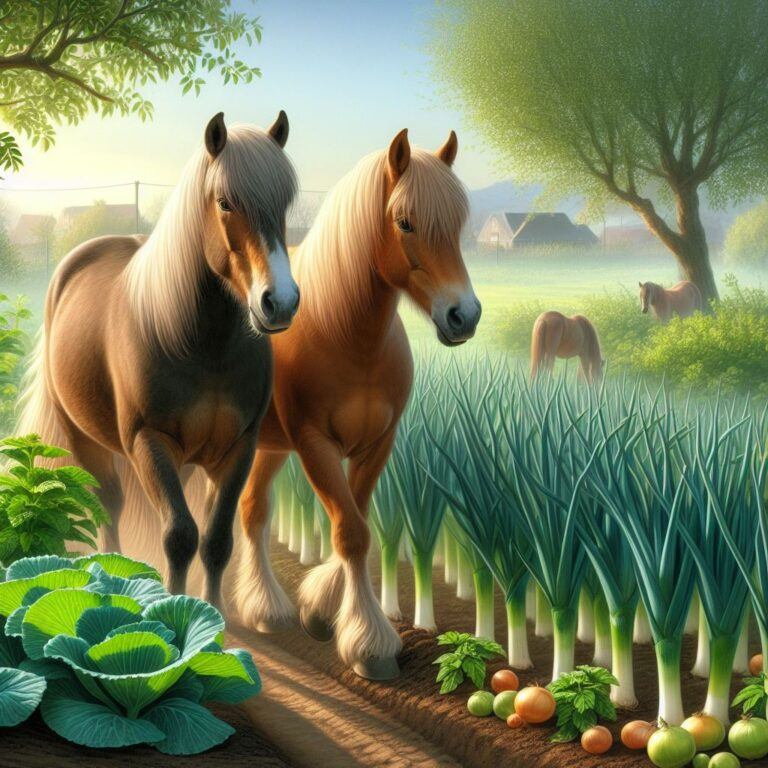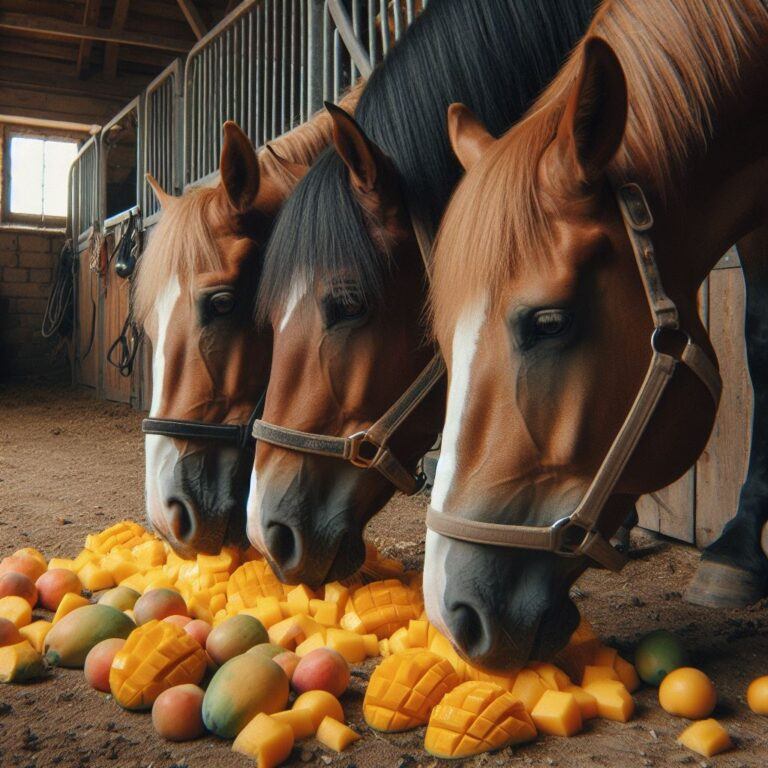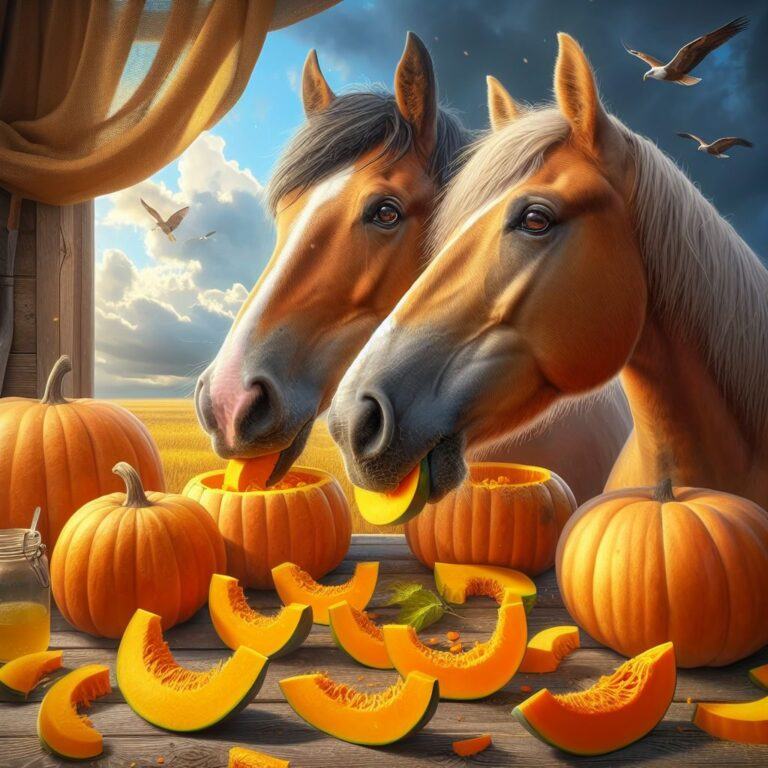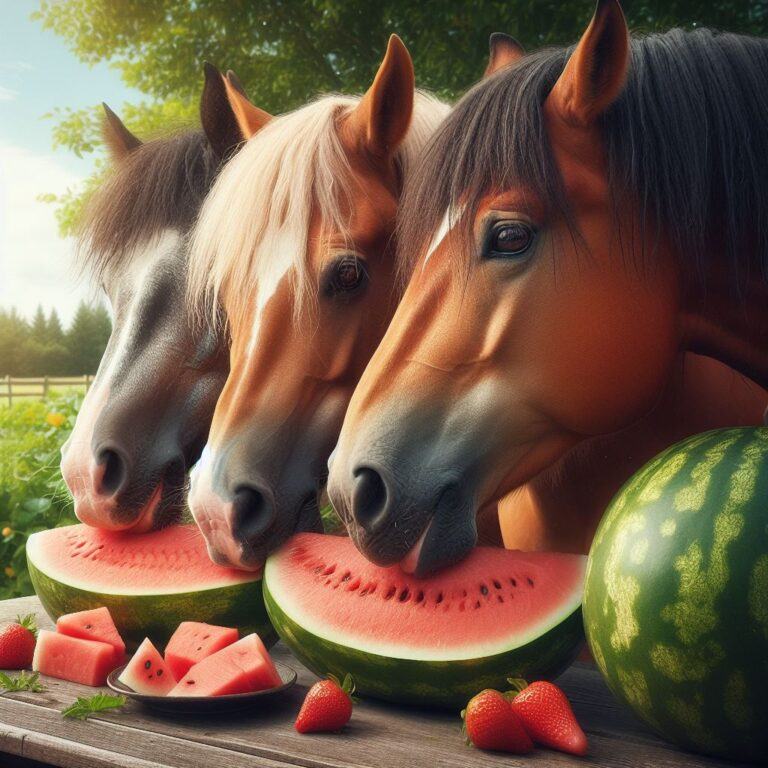Can Horses Safely Eat Apples
Yes, horses can safely eat apples. In fact, apples are a well-liked treat among many horses, favored for their sweet taste and juicy crunch. These fruits are not only delicious but also provide vital nutrients such as vitamins A and C, as well as dietary fiber, which can contribute positively to a horse’s overall diet.
However, feeding apples to horses requires some knowledge of their digestive system. While apples are healthy in moderation, they are not a substitute for a horse’s regular diet of fresh grass and grass hay, but rather a complement to it.
Horses have a sensitive digestive system, and overfeeding sugary treats like apples can lead to problems such as colic or dental issues.
I can’t stress enough the importance of moderation. As with all treats, the key is to offer apples in limited amounts.
This ensures that your horse reaps the benefits of the fruit’s vitamins and dietary fiber without risking their health.
It’s crucial to properly prepare apples before offering them to your horse. The right preparation can help prevent choking hazards and support easier digestion.
With these considerations in mind, apples aren’t just a safe snack, but they are also an enjoyable way to bond with your horse and encourage positive behavior.
In the following section, I’ll guide you through the proper way to feed apples to horses.
Paying close attention to preparation and feeding techniques not only keeps your horse safe but also adds enjoyable variety to their diet without compromising their well-being.
The Proper Way to Feed Apples to Horses
Apples can be a healthy treat, but I always recommend taking certain precautions. First and foremost, you should always wash the fruit thoroughly to remove any pesticides or chemicals that could be harmful.
Next, choking can be a worry when feeding apples to horses. To prevent this, cut apples into smaller chunks and always remove the seeds and the core.
Why? You may ask. Well, apple seeds contain amygdalin, which is a compound that can release cyanide during digestion.
While a horse can enjoy apples, they should not replace a significant portion of their daily meal.
To begin with, introduce apples slowly into their diet and limit the amount fed to just a couple of pieces per day. Always consult with a vet if you’re unsure about the exact quantity that’s safe for your horse.
You can also get creative in how you serve apples. Mixing them into feed, using them as a reward after training, or stuffing them into a treat ball are all worthwhile considerations.
My horses love this!
These methods not only provide variety and enrichment but also help to promote slow and careful eating.
Remember, horses are individuals, and what works for one may not suit another. Pay attention to your horse’s response to apples and adjust according to their needs.
Potential Risks and Considerations for Horse Owners
While apples are generally safe for horses, it’s my responsibility here to make you all aware of any potential risks that come with introducing new foods to your horse’s diet.
We should not only be aware of the signs of digestive distress, like colic or changes in bowel movements, but also be careful about the portion size and the horse’s overall health condition.
For certain horses, apples may not be the best option as a treat. Horses with specific health conditions such as insulin resistance, obesity, or dental issues will require a specific diet.
It’s crucial to consult with a vet before making any significant changes to what you’re feeding your horse.
Horse nutritionists and vets always emphasize balance when it comes to a horse’s diet. They say that any treats given, including apples or carrots, should not exceed more than 10% of the horse’s daily intake.
Too much of a good thing can upset the delicate balance of your horse’s nutrition.
Adding apples or any other treat should be done with a clear understanding of your horse’s nutritional needs and current health status.
Remember to balance treats with the horse’s regular feed and to consult with experts if in doubt.
As fun as it is to pamper these majestic animals with treats, their health and well-being must always come first.

